The Importance of Deep Candidate Evaluation: Going Beyond First Impressions
The process of evaluating a candidate during an interview—whether for sales, operations, or purchasing—should go beyond first impressions or standard qualifications. It's not just about finding someone who seems smart or looks good on paper. To truly assess a candidate's potential for success, especially in demanding roles, one must dive deeper into their personal and psychological characteristics. Here's how to approach this:
How to Understand a Candidate’s Life Patterns

One of the most effective ways to predict a candidate’s future performance is by examining their past behaviors, particularly through their habitual life scenarios. These are patterns of action or reactions to specific situations that the person has adopted over time. By asking thoughtful, open-ended questions about challenges they've faced or how they handle pressure, you can uncover key insights into their personality and how they’re likely to behave in your organization. I recommend you to read the article: Why is prioritizing hiring crucial for building a successful company?
The Motivation Behind the Actions

Understanding what drives a candidate is another vital component. Some candidates are motivated by external rewards like salary or status, while others seek fulfillment through mastery or autonomy. It's crucial to determine whether their motivation aligns with the role you're hiring for. For example, a purchasing manager might be driven by a sense of precision and control, while a sales manager could thrive on achieving targets and recognition. Discovering these drivers helps not only in predicting how the candidate will perform but also in maintaining their motivation long-term.
Predicting Success or Failure
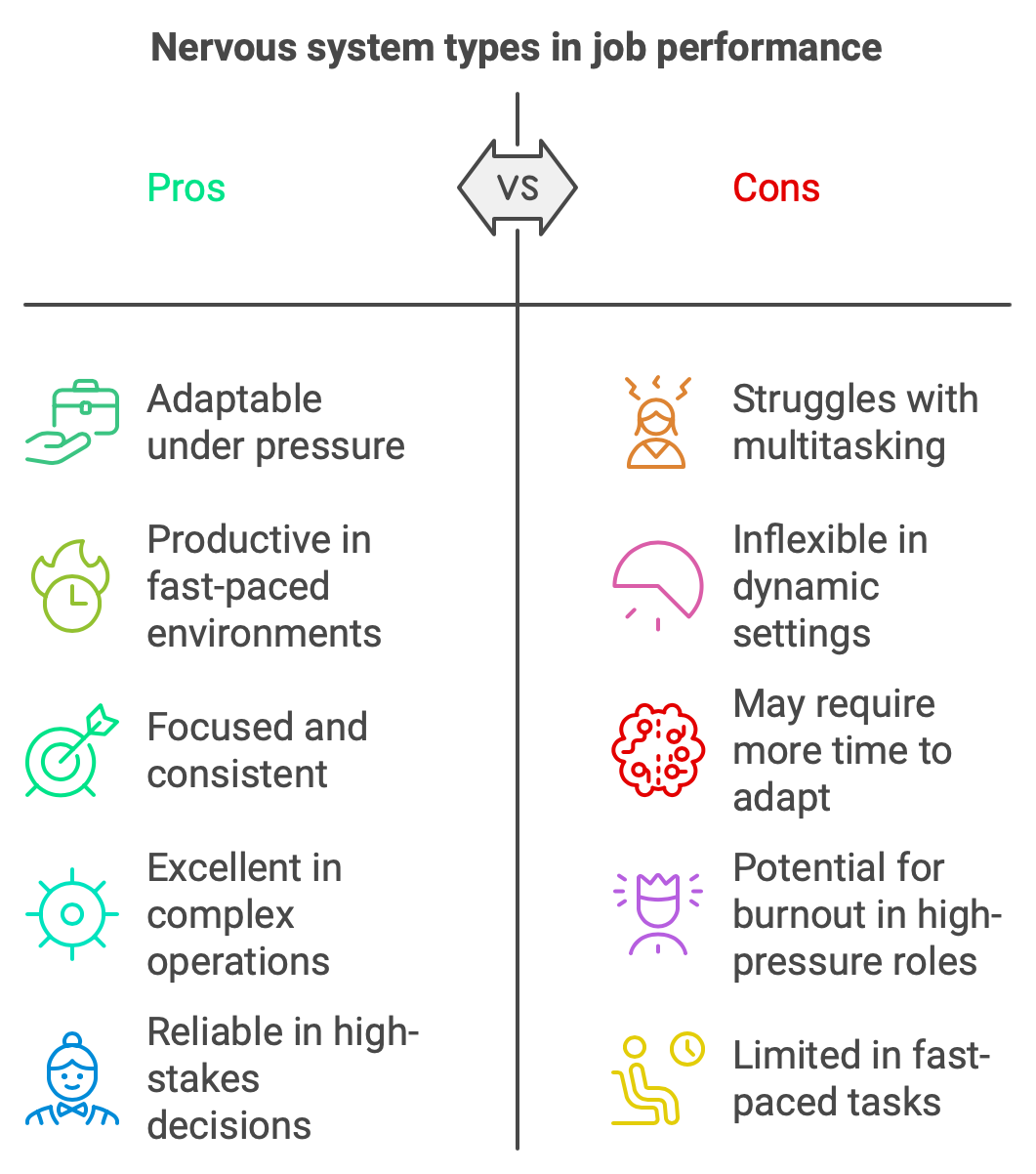
Once you’ve identified their patterns and motivations, it becomes easier to predict their potential success or failure in the role. For instance, candidates with a strong, adaptable nervous system tend to perform well in fast-paced environments because they can juggle multiple tasks and remain productive under pressure. Conversely, those with a more rigid nervous system may excel when focus and long-term consistency are required, such as in roles involving complex operational management or high-stakes purchasing decisions.
The Science Behind Evaluation: Going Beyond Intuition
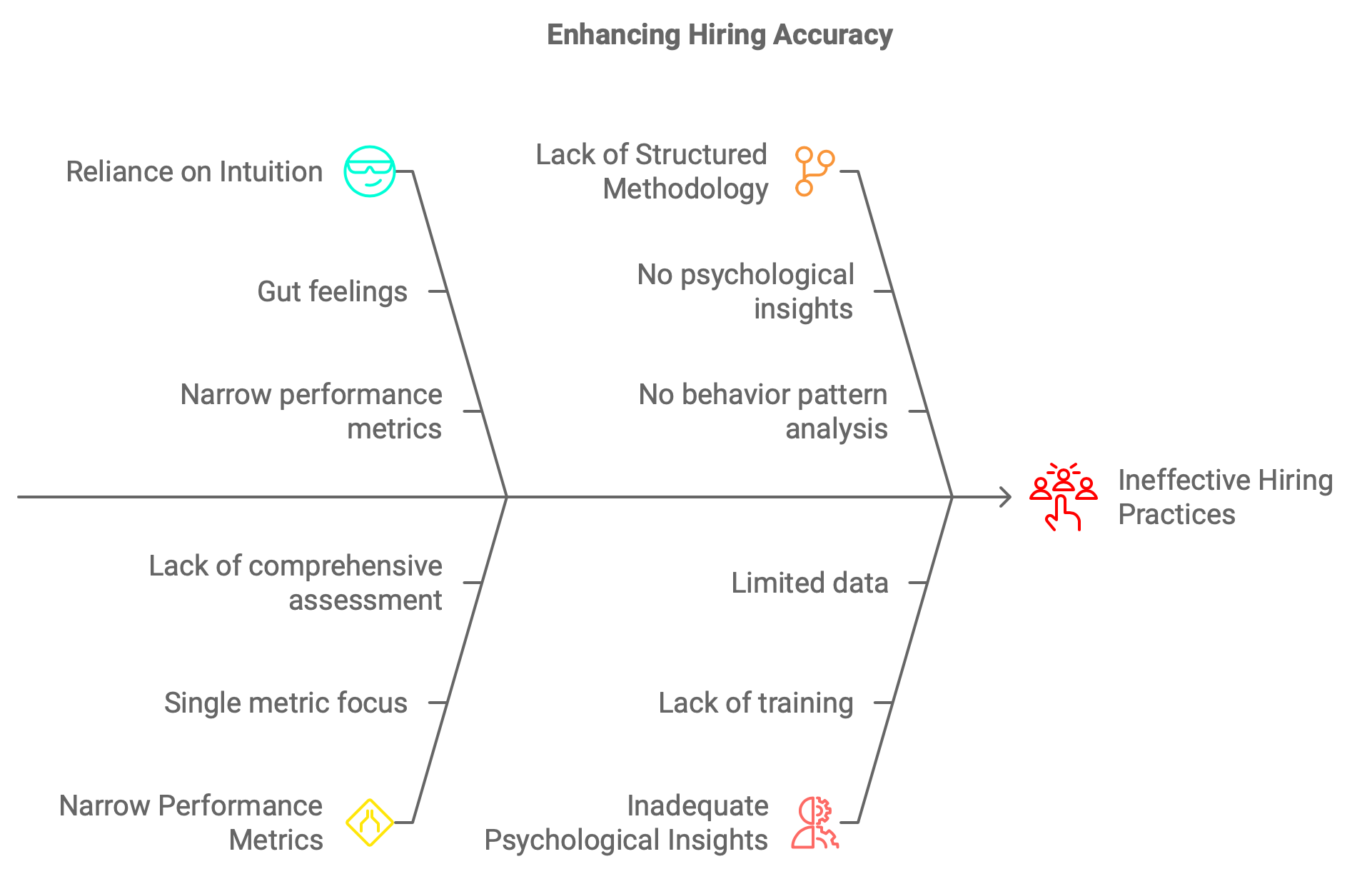
Effective evaluation goes beyond instinct or first impressions. Historically, many hiring managers, particularly in sales, have relied heavily on intuition or narrow performance metrics to evaluate candidates. However, a structured methodology—rooted in psychological insights and behavior patterns—can significantly enhance the accuracy of these assessments. It ensures that you’re not just hiring someone who is good at selling themselves in an interview but someone who will consistently perform in the job itself.
UnitiQ’s Holistic Approach to Candidate Evaluation
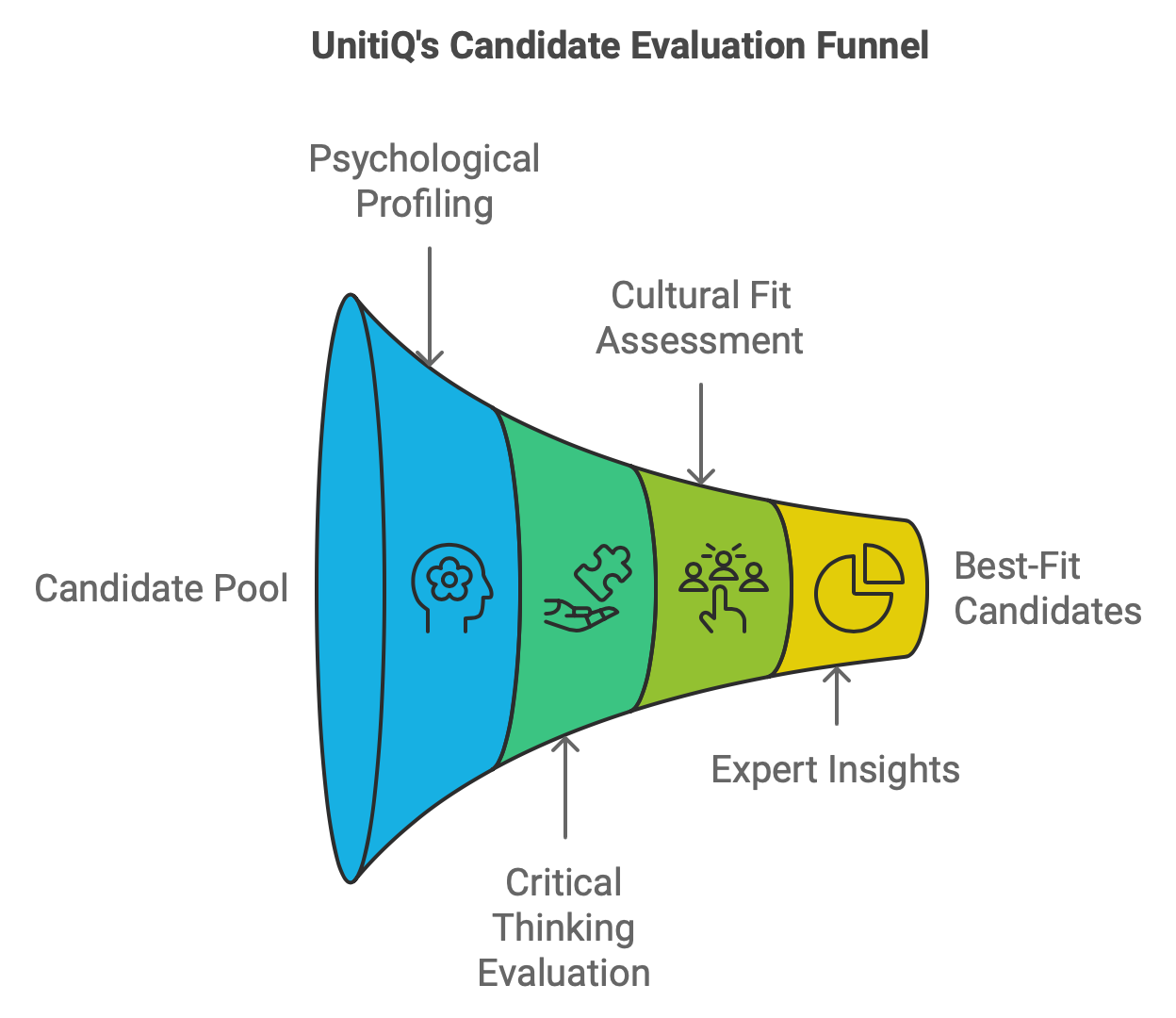
At UnitiQ, we take a holistic approach to evaluating candidates, ensuring that every new hire is not just qualified but genuinely aligned with our company’s values and mission. Our assessment process combines psychological profiling to understand the deeper motivations and behaviors of each candidate with critical thinking evaluations that measure problem-solving and decision-making capabilities. Beyond individual skills, we place great emphasis on cultural fit, ensuring that candidates will thrive in our unique environment and contribute positively to the team dynamic. We also leverage a pool of industry experts who provide valuable insights into the candidate's potential based on both industry standards and our specific needs. This multi-faceted approach allows us to consistently select the best-fit candidates who are poised for success at UnitiQ.
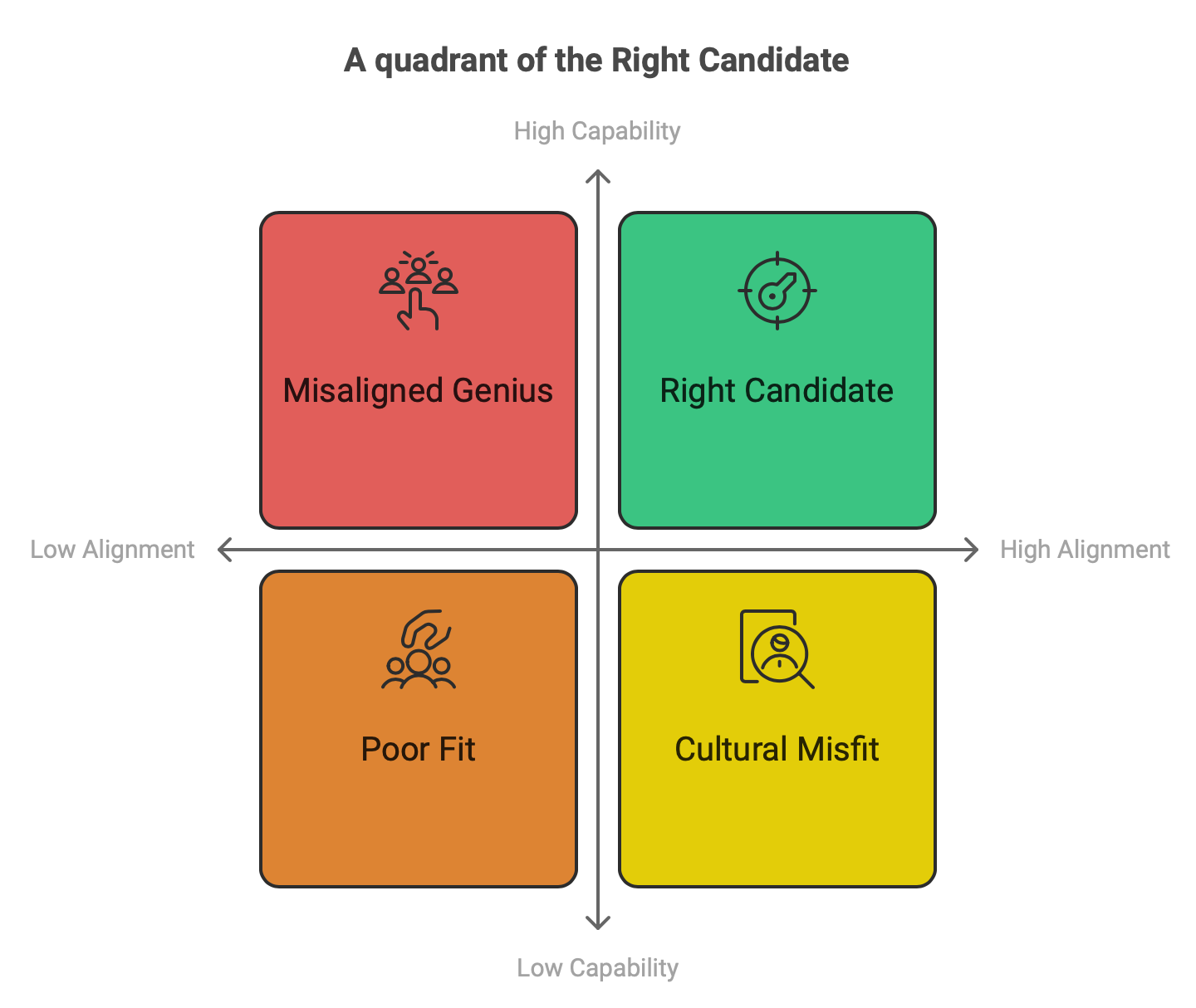
The Reality of HR: Experience vs. Methodology
One recurring issue in HR is the lack of a unified or scientific approach to evaluations. Whether you’re hiring salespeople, operations managers, or purchasing staff, relying solely on experience without a formal assessment method can lead to hiring mistakes. Many professionals admit they don’t use any specific evaluation methodology, leading to reliance on "gut feelings," which can be flawed. To mitigate this, it's crucial to employ structured methods that combine psychological profiling, scenario-based evaluations, and the candidate's track record.
Learning from Experience: Psychological Profiling and Characterology
In my career, I’ve encountered situations where relying purely on intuition has resulted in mixed outcomes. Early on, I was fortunate to work with a skilled psychologist who could assess a candidate’s character traits effectively. Over time, I realized that combining psychology with a structured, behavioral evaluation method—like characterology—creates a robust framework for identifying top talent. This approach evaluates individuals across eight personality dimensions, offering a clearer understanding of their potential behaviors in different scenarios.
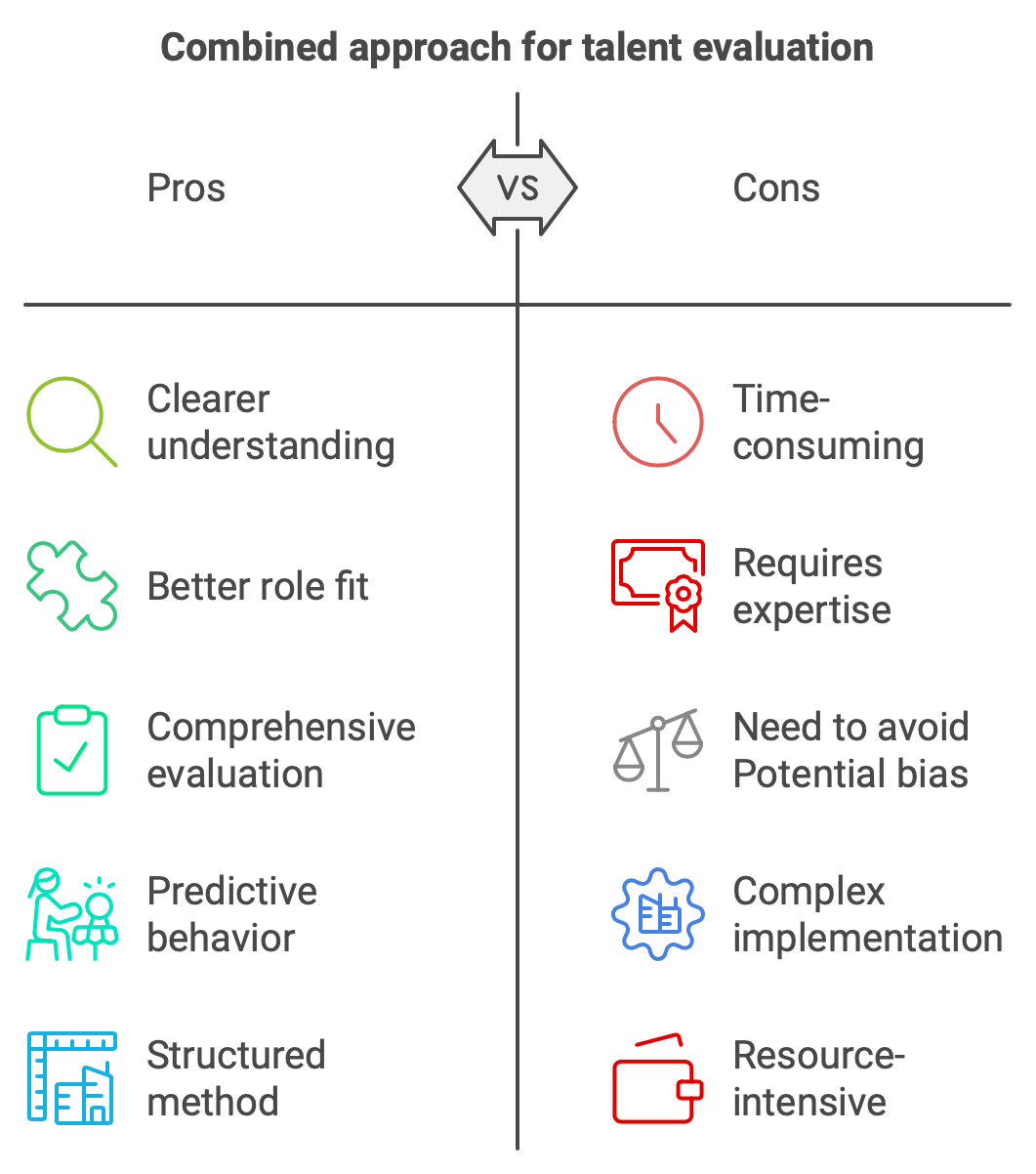
For instance, some candidates may demonstrate what we call “epileptoid” traits, meaning they have high energy and decisiveness. Such individuals excel in high-pressure roles but might struggle in positions that require long-term strategic thinking or patient diplomacy. This is why I advocate for a blend of psychological and practical evaluations to find the right fit for the right role.
Intentions Matter More Than Words
When interviewing, one common mistake is focusing too much on what candidates say and how they present themselves, rather than the underlying intentions driving their actions. The core of every action lies in intent. Understanding a person’s intention—the emotional motivation that drives their decisions—provides deeper insight into how they’ll act under pressure or in high-stakes situations.
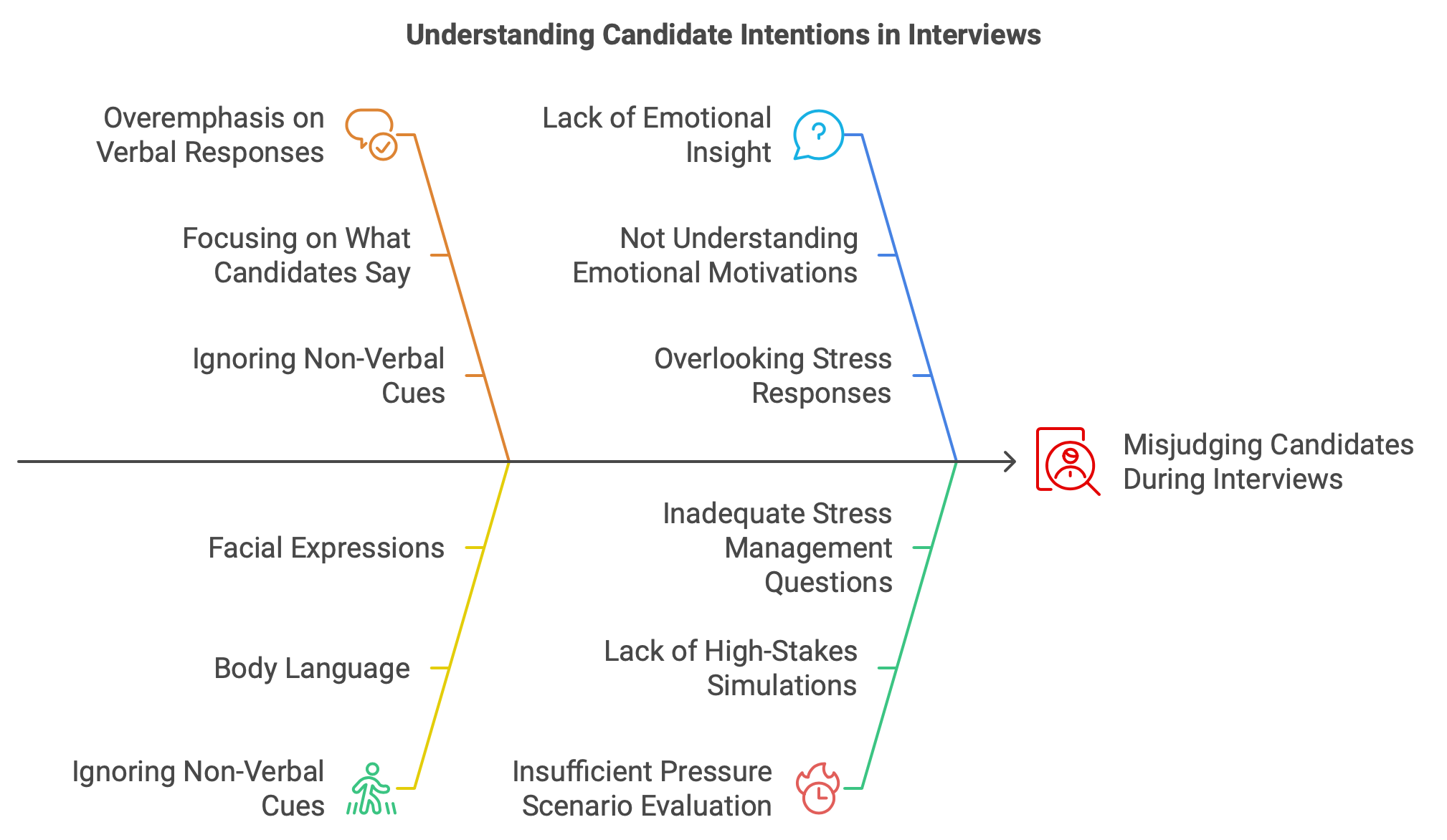
For example, when you’re evaluating an operations manager, their ability to maintain efficiency isn’t just about following procedures. It’s about their intention to create order and predictability. If their intention is genuine, they’ll naturally align their actions with organizational goals.
Diagnosis and Prognosis in Interviews
The ultimate goal of any interview is to project how a candidate will perform in the future. Simple role-playing exercises like asking them to sell a product or complete a test might provide some clues, but they often fail to capture the full picture. Candidates can excel in interviews by focusing on their short-term behavior, but the real question is whether they’ll perform when the stakes are higher in the actual job.
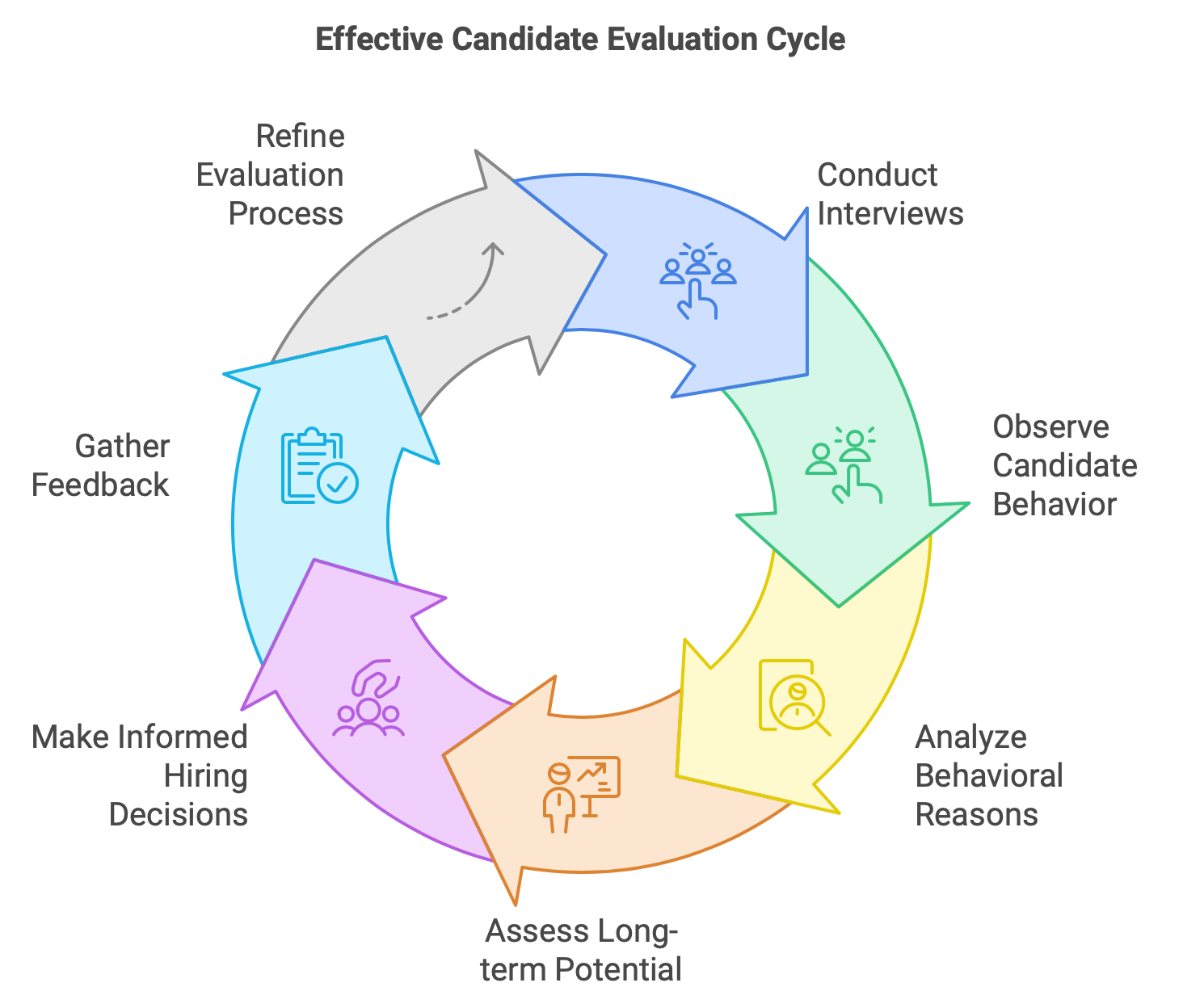
This is where structured evaluation becomes crucial. Instead of assessing what the candidate can do during the interview, you need to explore why they’re doing it. The reason behind their actions—whether rooted in genuine passion, a desire for growth, or simply the need for a paycheck—will determine their long-term success or failure.
Conclusion
At the end of the day, successful recruitment boils down to understanding the candidate’s deeper motivations and patterns of behavior. Whether you're hiring for sales, purchasing, or operational roles, it’s essential to look beyond surface-level performance and dive into their psychological makeup. Predicting how they’ll behave under real-world conditions allows you to build stronger, more resilient teams.
This method of evaluation is incredibly effective, but it requires a significant investment of time and effort. Too often, hiring processes are rushed, and critical insights about a candidate are missed. I believe that integrating structured psychological profiling with traditional assessments not only helps in choosing the right people but also in creating a more motivated and aligned workforce. By focusing on why people behave the way they do, we can ensure better hires and, ultimately, stronger organizations.
I recommend you to read related articles:
6 Key Use Cases Where Fractional HR Solutions Drive Business Growth
Scaling Smart: How UnitiQ Helps In-House HR Teams Overcome Key Challenges
Promotions Gone Wrong: From Star Performer to Struggling Leader
How Growing and Scaling Businesses Can Attract Top Talent: Proven HR Strategies for Success
This method of evaluation is incredibly effective, but it requires a significant investment of time and effort. Too often, hiring processes are rushed, and critical insights about a candidate are missed. I believe that integrating structured psychological profiling with traditional assessments not only helps in choosing the right people but also in creating a more motivated and aligned workforce. By focusing on why people behave the way they do, we can ensure better hires and, ultimately, stronger organizations.
I recommend you to read related articles:
6 Key Use Cases Where Fractional HR Solutions Drive Business Growth
Scaling Smart: How UnitiQ Helps In-House HR Teams Overcome Key Challenges
Promotions Gone Wrong: From Star Performer to Struggling Leader
How Growing and Scaling Businesses Can Attract Top Talent: Proven HR Strategies for Success
UnitiQ’s Fractional HR Services: Expert Talent Acquisition When You Need It
At UnitiQ, our fractional HR services offer businesses the flexibility to access high-level HR expertise without the commitment of a full-time in-house team. This service is particularly valuable for companies looking to optimize their talent acquisition processes. Our experienced HR professionals work alongside your team to assess and implement recruitment strategies that attract the best talent for your organization.
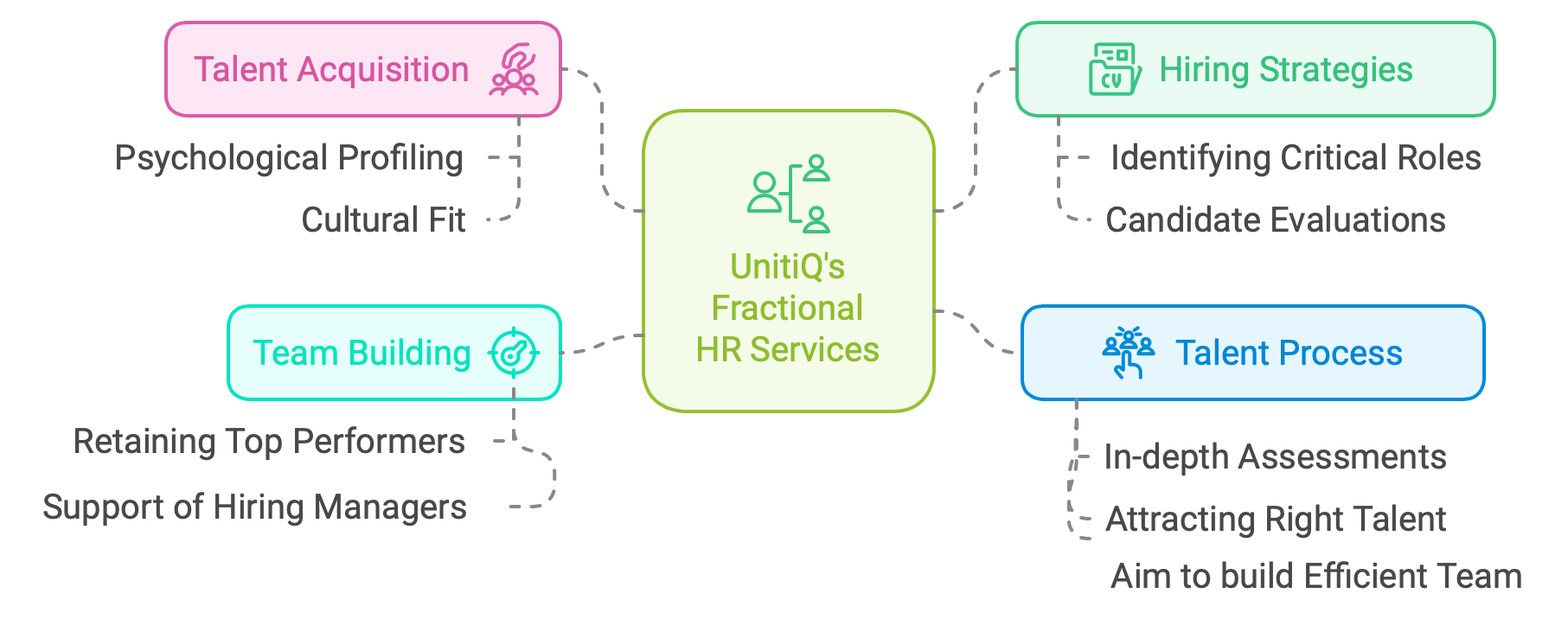
From identifying critical roles to conducting in-depth candidate evaluations, we ensure a seamless, efficient hiring process. Whether you're scaling quickly or need specialized support, UnitiQ’s fractional HR services give you access to industry experts who know how to find and retain top performers. Read our article: 10 Markers of True HR Expertise: Find the Right Talent Acquisition and Recruitment Partner
With our focus on both psychological profiling and cultural fit, we help you build stronger, more aligned teams ready for success.
Contact me, Olga Fedoseeva, Fonder at UnitiQ, directly:
My Telegram
My LinkedIn








